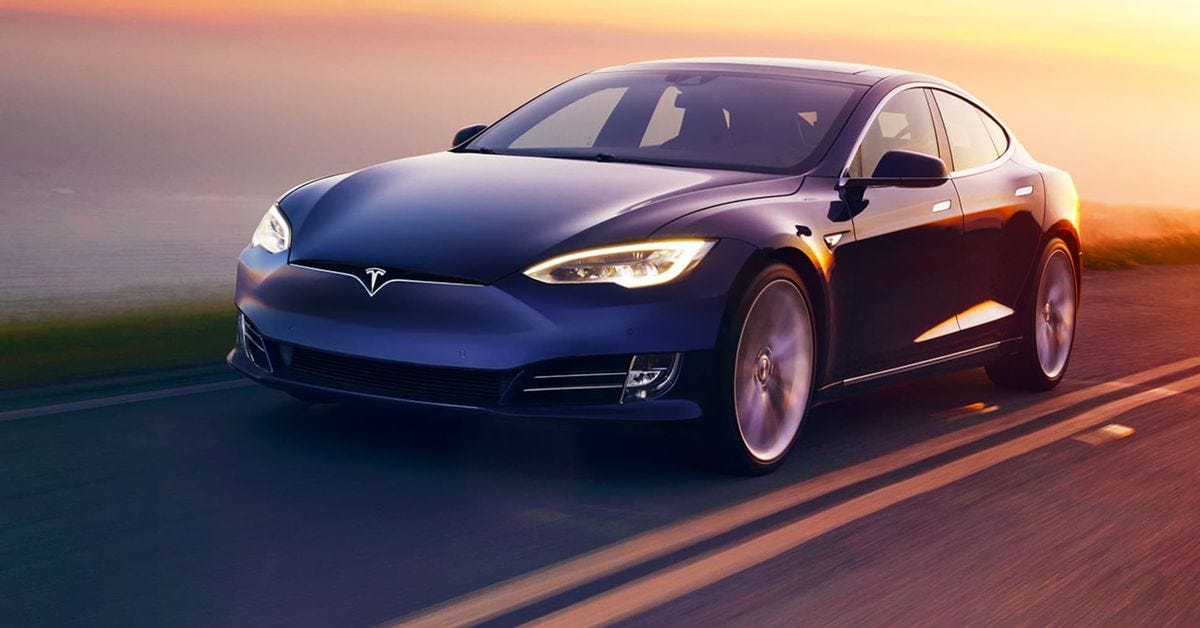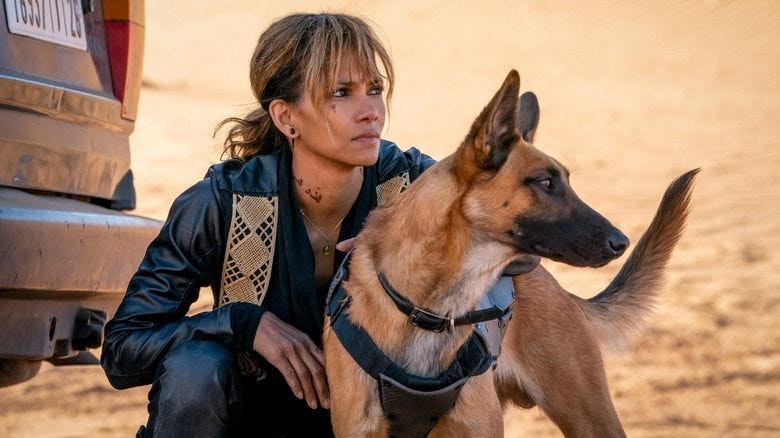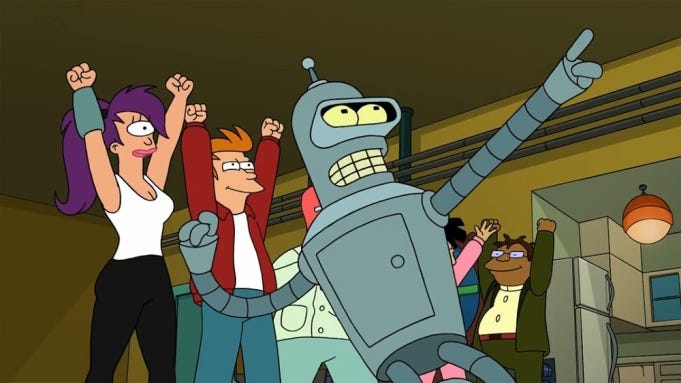Reversing COVID/Political "De-Friend" Movement? How the Civil War Invented $20K Funerals, $10/Month (Forever) for Heated Seats In Your Car, Show "Un-Canceled" for the 5th Time! (The Five for 02/11/22)
Hey, welcome to The Five.
It’s Friday, so let’s dive into Culture & Commentary.
[one]
The Atlantic has an amazing opinion piece this week, It’s Your Friends Who Break Your Heart. The author, a divorcee with grown children, laments losing more and more friends at a time when friends are so vital.
You lose friends to marriage, to parenthood, to politics—even when you share the same politics. (Political obsessions are a big, underdiscussed friendship-ender in my view, and they seem to only deepen with age.) You lose friends to success, to failure, to flukish strokes of good or ill luck. (Envy, dear God—it’s the mother of all unspeakables in a friendship, the lulu of all shames.) These life changes and upheavals don’t just consume your friends’ time and attention. They often reveal unseemly characterological truths about the people you love most, behaviors and traits you previously hadn’t imagined possible.
Those are brutal.
And I’ve still left out three of the most common and dramatic friendship disrupters: moving, divorce, and death. Though only the last is irremediable.
COVID and the political landscape have left scars across the nation in general, but perhaps more importantly…across individual friendships and strained familial relations.
In the wake of the January 6th riots, I thought I’d lost two of my closest friends, who were on opposite sides of the issue. In a strange twist of fate, the friend who agreed with the riots (before a quick change of heart) and I quickly patched things up.
The friend who I agreed with on the actual riots (as I’ve said before—riots. always. bad.) refused to speak to me on the phone, and later emailed me with an ultimatum that either I attend counseling or we were done being friends. Ultimatum’s rarely lead to reconciliation, so that was pretty much it, sadly.
As we reach the tail end of the pandemic, there’s no doubt most of us feel more lonely…despite being continually connected via social media, text, video chat, etc. For the most part, if we want to talk, there’s someone to talk to.
But loneliness doesn’t seem to come from the absence of another person to interact with—it seems to come from a lack of belonging.
I believe what’s been lost is the sense of being rooted, which is much more difficult to feel as religious participation and civic organizations (i.e. Rotary Club), and even university alumni associations have all declined sharply.
We work a lot (and never disconnect from work), commute more than previous generations, and live in a turbulent world. Children’s lives revolve much more around extracurricular activities (often due to parents pushing them to be “great” at something, ugh) rather than a group of friends from school or the neighborhood.
When politics and COVID hit, those twin divisive hurricanes ripped threads that weren’t stitched together by much at all. Previously, church, “mutual assistance” (growing up on a farm, this would be somebody else getting your bull off the highway after he broke through the fence, and you’d help them later with something), school functions and other necessities of life knit relationships together.
Now, Americans do less of the things that rooted us.
Disagreements over Trump/Hillary/Biden/Pick Your Poison and COVID may have killed a lot of personal relationships, but there have been pandemics and politics before.
This time, those things hit a world trending towards toxic individualism for a good three decades.
To borrow one more natural disaster metaphor, I see this era of strained relationships like a midwestern town hit by a tornado.
We’re either going to have to live in the rubble, or rebuild.
Cook dinner for friends. Volunteer, regularly. Coach something. Start a book club that meets in real life.
In 2022, the most counter-culture thing you can do may just be to do the stuff people used to do.
We can’t just “try harder” at friendships…we’re going to have to rebuild the things friendships used to be built on.
[two]
Perhaps one of the strangest things about modern society is the habit of pumping our deceased loved ones full of chemicals and then burning through a tremendous amount of cash for extravagant (but not necessarily helpful) funeral services.
Turns out, the practice was started during the Civil War, when 40,000 of the 600,000 killed were embalmed and shipped home for burial.
Then, Abraham Lincoln’s assassination essentially invented the modern funeral industry.
If the Civil War gave doctors the opportunity to tinker with embalming, the assassination of Abraham Lincoln created a market for it. Lincoln’s cross-country funeral procession passed through small towns and cities alike en route to his home in Springfield, Illinois. In order to keep his body fresh for the trip, he was embalmed at each stop. When Americans flocked to see his casket, they were shocked to see such lifelike facial features on their slain president.
Since then, the U.S. funeral industry has ballooned to a $20 billion-per-year behemoth, with employment opportunities as morticians, funeral directors, casket manufacturers, transport teams, and many other specialized positions. If you die in America in this century, odds are you’ll be embalmed by a traditional funeral home so that your body can be preserved for future viewing. “Embalming is a simple exchange of fluids,” said Cy Hume, president, manager, and part owner of A.S. Turner & Sons Funeral Home and Crematory in Decatur, Georgia. Bodily fluids and internal organs are taken out, and preserving chemicals are pumped in.
But after 157 years, a handful of cemeteries are moving back to more traditional burial services, which are cheaper, more natural…and a lot less weird. Places like Milton Fields Natural Burial Ground outside of Atlanta, GA (pictured in the photos of this story) offer a traditional funeral service—outdoor chapel, pine box, stone marker, no embalming.
The cost is a fraction of the modern funeral industry, and the whole thing just feels…more natural.
(Note: you should probably listen this song now).
Oddly enough, my home state of Illinois, which has laws against pretty much everything, allows both home burials and funeral pyres. So, even if there isn’t a “natural cemetery” by you, local ordinance may allow loved ones to skip the funeral industry completely, provided you have access to private or farm land.
But hey, it’s Illinois. Just because you bury a loved on on a family farm won’t stop them from voting Democrat in the city of Chicago for the next 80 years.
UPDATE: The Bitter Southerner has an excellent follow up on a family who buried their mother on private land. it’s an excellent follow up read, if you’re interested in learning more.
[three]
How would you feel about paying $5 each month for the ability to lock and unlock your car from a distance through an app? What about a $25-per-month charge for advanced cruise control or $10 to access heated seats? What if those charges continued long after your car was paid off?
As vehicles become increasingly connected to the internet, car companies aim to rake in billions by having customers pay monthly or annual subscriptions to access certain features. Not content with the relatively low-margin business of building and selling cars, automakers are eager to pull down Silicon Valley-style profits. But unlike with Netflix, you won't be able to use your ex-girlfriend's uncle's login in your new BMW.
For automakers, the advantage of this model is clear. Not only do they get a stream of recurring revenue for years after an initial purchase, they can hope to maintain a longer-term relationship with the customer and build brand loyalty, said Kristin Kolodge, an analyst at JD Power.
This approach can also allow carmakers to streamline manufacturing by building cars to more uniform specifications, Mark Wakefield, who runs the automotive and industrial practice at the consulting firm AlixPartners, told Insider. Down the line, owners can add on the features they want à la carte.
No. No. No. No. No. No.
A car is not Netflix.
There is some nuance here, as the $5/month for a remote unlock feature reuquires a cellular connection.
For the rest of it, we’re talking about a Paywall, like when you read too many free articles on a website and get the “blocker” to pay up or leave.
That’s fine on a website…when you’re going from free to paid.
Once you purchase something…it should be yours.
This is similar to the “right to repair” debate that’s happened in the agriculture world, when John Deere locked their tractor computers to make sure farmers couldn’t go local mechanics for repairs and had to return to the dealership.
The good news is…so far, consumers have rejected moves like this from corporations. In 2013, XBOX attempted to release a console that wouldn’t allow users to re-sell games when they were done playing them, and also used technology to block the purchase of used games.
Consumers rejected the idea, and XBOX radically changed direction.
Similarly, during the early days of the iPod, some music labels attempted to release “DRM protected” (digital rights management) CD’s which blocked consumers from ripping their legally purchased music to their legally purchased iPod, for listening on the go.
Again, the technology was quickly abandoned due to extreme backlash from music fans.
So…let’s all do that again.
It’s fine to pay monthly for Netflix, home security and other “service” products.
But you should never, ever have to pay a subscription for something you already purchased.
[four]
The LA Rams and Cincinnati Bengals square off this weekend, and tickets are (by Super Bowl standards) cheap…due to the fact that the game is in LA this year.
“The last couple of days, the get-in has dropped, as have median prices.” Khanna said. “It’s not that surprising. Every year seems to have a slightly different sales cycle. … Really, what’s unique about this one is that home team aspect — the fact that the Rams play here in Los Angeles, that their fans tend to live here in Los Angeles. Typically, we’ve seen earlier buying cycles because fans have had to buy their tickets. They had to buy flights. They had to buy hotels. And in addition to that, they would buy their Super Bowl tickets, so that they would know they’re going to the game and weren’t just traveling in vain.
“This year, we have a bunch of fans who can literally wake up on Sunday morning without having worried about any kind of logistics and just show up to the game. So we do expect prices to start to increase if and when that buying base does start to really come in.”
[five]
As always, let’s head into the weekend with a pop culture roundup.
Note: I don’t care about the Oscars, or any other awards show. Moving on…
Gerard Butler (300, Olympus Has Fallen) is teaming up with John Wick and Nobody director Derek Kolstad for a movie based on a novel by Dexter creator Jeff Lindsay. Just Watch Me will tell the story of a thief attempting to steal the Crown Jewels of Iran.
The upcoming movie from Zack Snyder (300, Justice League) is actually a failed Star Wars spinoff. After it was rejected, Snyder took the Star Wars specific elements out and soldiered on. Charlie Hunnam (Sons of Anarchy, Pacific Rim), Ray Fisher (Justice League, True Detective), Jena Malone (The Hunger Games, Pride & Prejudice) and Sofia Boutela (Kingsman: The Secret Service, Atomic Blonde).
Snyder describes Rebel Moon as a “grand fantasy adventure” with a plot large enough to fill several interconnected movies and TV shows. Netflix posted some of Snyder’s concept art to Twitter, which is worth a look if this movie/world sounds interesting to you.
The next Star Wars TV Show, Obi-Wan, will follow the events of the Star Wars I-III (originally released 1999-2005) with Ewan McGregor and Hayden Christenson resuming their roles as Obi-Wan Kenobi and Annikan Skywalker/Darth Vader…former mentor/pupil turned bitter enemies.
On Disney+ May 25.
And speaking of John Wick, the TV spinoff of the action movie series, The Continental, will debut on Starz on May 2th. Mel Gibson (Braveheart, The Patriot) joins the cast in his first TV role since 1978, with Katie McGrath (Supergirl), Ray McKinnon (Rectify) Adam Shapiro (Never Have I Ever), Mark Musashi (Fear of the Walking Dead) and Marina Mazepa (Malignant) joining him.
The series centers around a hotel for assassins in the 1970’s.
Elsewhere in the John-Wick-verse, it’s possible Halley Berry’s character from the franchise, a retired assassin/single mom/loyal dog owner may get a spinoff TV show/movie as well.
Beloved adult animated sitcom Futurama is back…again. Created by The Simpsons creator Matt Groening and Bevis and Butthead writer David X Cohen, the series followed the adventures of a pizza delivery man cryogenically frozen in 1999, who is thawed out 1,000 years later. Groening said The Simpsons was a way to “both poke fun at and honor the American family, and Futurama does the same for science fiction.”
I’ve never watched the original, but the writing staff somehow contained 3 PhD’s, seven master’s degrees and over 50 collective years at Harvard, it was a science fiction show written by, well, actual scientists.
The series ran on Fox from 1999-2003, before being abruptly canceled. It was brought back, and canceled, three more times by Comedy Central. (Due to all the cancellations, there were 7 seasons…but stretched out over 14 years).
This time, the series will have a go on Hulu, with the majority of the original cast returning.
MUSIC/MY PICK: With the trucker protest continuing in Canada (and spreading to the rest of the world?) I wanted to pull out the best trucker song ever recorded. Well, technically this is a Mandy Moore cover of the best trucker song ever recorded.
Truck drivers are absolutely vital to our society, and get precious little accolades, thanks…or pop culture about them.
MUSIC NEWS: The first installation of the three part Kanye West documentary hit Netflix today, which Mr. West is apparently celebrating by getting into a huge tiff with pop singer Billy Eilish.
West says he has a new album releasing on 02.22.22, but he’s notorious for missing deadlines.
Until the next one,
-sth











